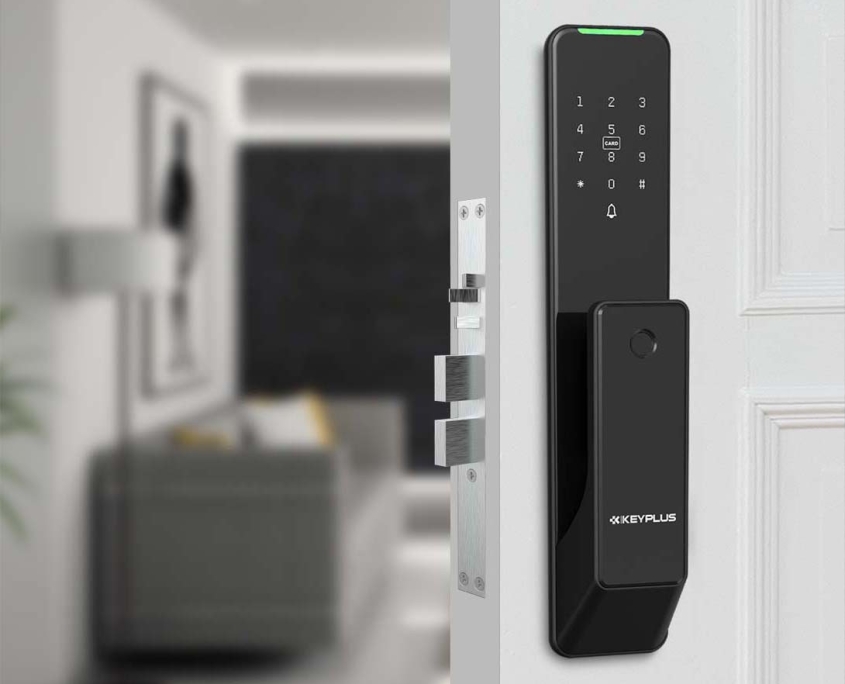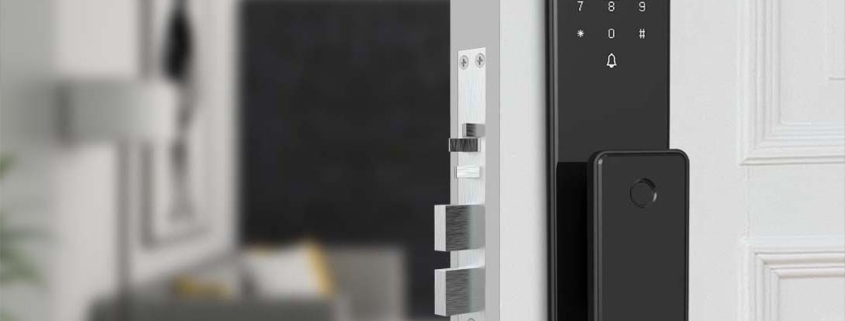Smart Lock vs. Wi-Fi vs. Bluetooth: Which Is Best for Your Home?
If you’re considering upgrading to a smart lock, you’ve probably noticed that some use Wi-Fi, some rely on Bluetooth, and others are marketed as standalone “smart locks.”
So, which is better? Should you get a Wi-Fi-enabled lock for remote access, a Bluetooth model for simplicity, or a full smart lock with multiple connectivity options?
In this guide, we’ll break down:
- How each type of lock works
- Pros and cons of Wi-Fi, Bluetooth, and hybrid smart locks
- Which is most secure?
- Our final recommendation based on your needs
By the end, you’ll know exactly which smart lock technology is right for your home.
1. What’s the Difference Between Smart Locks, Wi-Fi Locks, and Bluetooth Locks?
First, let’s clarify the terms:
Smart Lock (General Term)
A “smart lock” is any keyless lock that connects to your phone or smart home system. Some use Wi-Fi, some use Bluetooth, and some use both (or even Zigbee/Z-Wave).
Wi-Fi Smart Locks
- Connect directly to your home Wi-Fi
- Can be controlled from anywhere (remotely)
Bluetooth Smart Locks
- Require your phone to be nearby (short-range connection)
- No remote access unless paired with a hub
Hybrid Smart Locks (Wi-Fi + Bluetooth + More)
- Offer multiple connectivity options
- Best for smart home integration
Now, let’s compare them head-to-head.

2. Smart Lock vs. Wi-Fi vs. Bluetooth: Key Differences
| Feature | Bluetooth Locks | Wi-Fi Locks | Hybrid Smart Locks |
|---|---|---|---|
| Remote Access | No (unless with hub) | Yes | Yes |
| Works Away from Home? | No | Yes | Yes |
| Battery Life | Long (6-12 months) | Short (3-6 months) | Depends on mode |
| Connection Speed | Fast | ⚠ Can lag | Fast |
| Smart Home Integration | Limited | Good | Best (works with Alexa, Google, Apple Home) |
| Security Risk | Low (short-range) | ⚠ Higher (hackable if Wi-Fi is weak) | Depends on setup |
| Price | $(150−250) | $(200−350) | $(250−500) |
3. Pros and Cons of Each Type
Bluetooth Locks: Simple but Limited
Pros:
Long battery life (no Wi-Fi draining power)
More secure (harder to hack remotely)
Cheaper than Wi-Fi locks
Cons:
No remote unlocking (must be near the door)
Limited smart home features
Best for: People who want keyless entry but don’t need remote access.
Wi-Fi Locks: Best for Remote Access
Pros:
Control from anywhere (great for Airbnb hosts or rentals)
Works with voice assistants (Alexa, Google Home)
Cons:
Drains battery faster
Best for: Frequent travelers or those who want full remote control.
Hybrid Smart Locks: The Most Versatile
Pros:
Multiple connection options (Wi-Fi + Bluetooth + more)
Best for smart home setups
More future-proof
Cons:
Most expensive
Best for: Tech enthusiasts who want maximum flexibility.
4. Which Is More Secure?
Security is a top concern—so which lock type is safest?
- Bluetooth: Generally more secure because hackers need to be physically close.
- Wi-Fi: Potentially riskier if your home network is weak (always use strong passwords!).
- Hybrid: Depends on setup—some use encrypted signals for better security.
Tip: Look for locks with AES 128-bit encryption and two-factor authentication (2FA) for the best protection.
5. Which Should You Buy? Our Recommendation
Choose a Bluetooth Lock If…
- You only need keyless entry at home
- You want long battery life
- You don’t need remote access
Choose a Wi-Fi Lock If…
- You want to lock/unlock doors remotely
- You manage rental properties
- You use voice assistants often
Choose a Hybrid Smart Lock If…
- You have a full smart home system
- You want the most features
- You’re willing to pay extra for flexibility
Final Verdict: Is a Smart Lock Better Than Wi-Fi or Bluetooth?
It depends on your needs!
- For simplicity & battery life → Bluetooth
- For remote access → Wi-Fi
- For the best of both worlds → Hybrid Smart Lock
The best smart lock is the one that fits your lifestyle. Want convenience? Go Wi-Fi. Prefer security? Bluetooth is great. Want it all? A hybrid lock is worth the investment.
What’s your experience with smart locks? Do you prefer Wi-Fi, Bluetooth, or a mix? If you want to know more, please let us know in the comment section!









